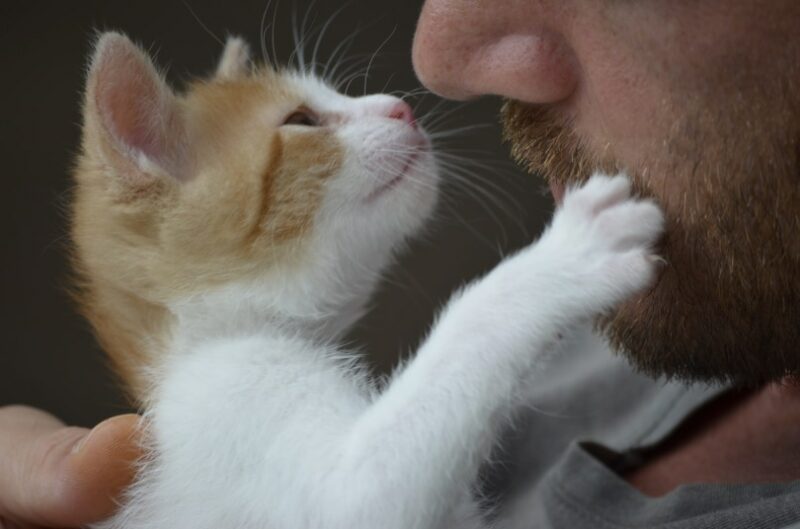Cats have a unique odor that many people find appealing. In fact, some people enjoy the scent so much that they actively seek out the opportunity to smell their cats, known as cat huffing. But why is this the case? What is it about the smell of cats that draws people in? Keep reading as we explore several possible reasons for this behavior.
Why Do People Like Smelling Cats?
It’s an Instinctive Reaction to Healthy Animals
Some people believe that humans have developed an instinctive attraction to the scent of a healthy cat as a way to identify ideal companions and protectors. Even if we don’t realize it, a cat’s odor can reveal much about their health and well-being, and after sharing our homes with them for thousands of years, we have adapted to consider their healthy odor to be pleasant.
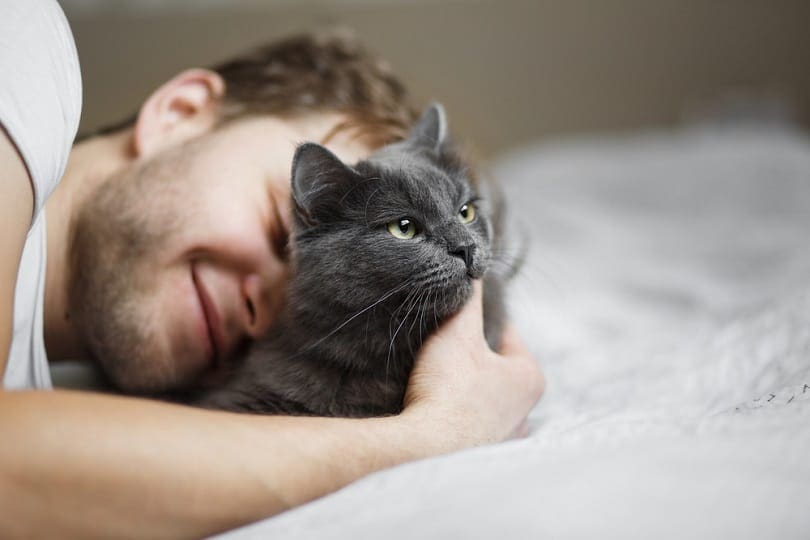
It Triggers Positive Memories
Another reason people might like to smell their cats is that it triggers a positive association in the brain. Many people have fond memories of playing and cuddling with cats when they were children, and smelling a cat now can help them relive that part of their childhood. In some cases, it might even have a calming effect and reduce anxiety.
It’s Relaxing
Even if they didn’t have a cat as a child, many people find the scent of a cat to be pleasant and even comforting, so having one around the house or even sniffing one of your friend’s cats can produce a relaxing effect for some people.
They Are Clean
Another reason people might like smelling cats so much is that their grooming habits keep cats exceptionally clean. They quickly remove anything that might produce a bad fragrance with their rough tongue, so they usually naturally smell nice.
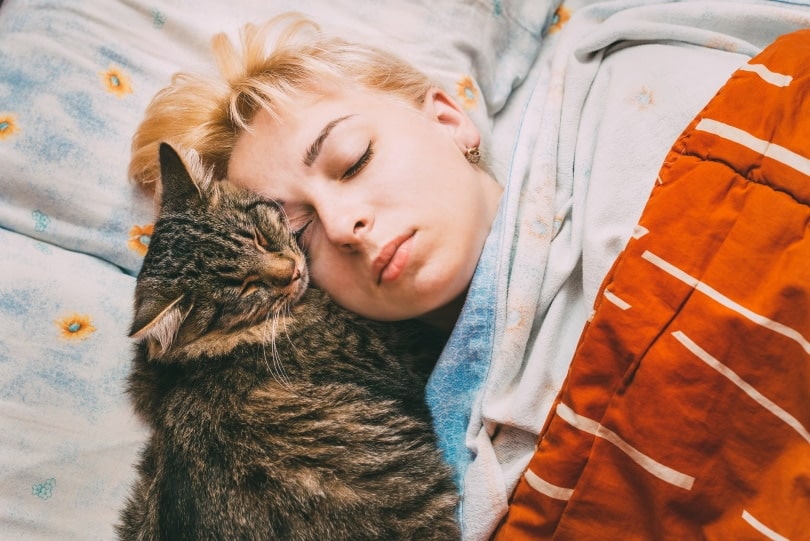
What Makes Cats Smell So Good?
Cats have a unique smell that combines their skin, saliva, and other secretions into an overall fragrance, and several factors, including diet, grooming habits, and overall health, can influence it. Their odor can be pleasant because it means they are healthy or triggers positive childhood memories that you associate with that smell. That said, it may also have to do with the pheromones that the cats produce. These are chemical signals that many animals, including cats, use to communicate with each other. Cats produce pheromones in various glands throughout their body, and they use them to mark their territory, signal mating readiness, and convey many other messages.
Pheromone Sprays
The Journal of Feline Medicine and Surgery did a study that found that a synthetic feline pheromone spray effectively reduced stress and anxiety in cats housed in a veterinary clinic. The study also suggested that the spray could help reduce stress in humans interacting with cats in clinical settings.
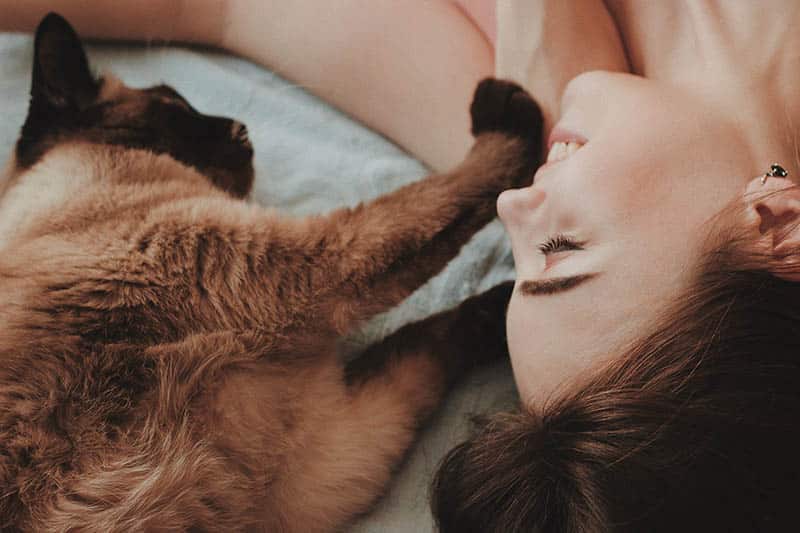
Do All Cats Smell the Same?
Not all cats smell the same, and they can have health or hygiene issues that lead to an unpleasant odor, especially if they spend time outside. Also, not all humans find the smell of a cat pleasurable. Some people dislike the smell of cats, especially indoor cats with a litter box nearby. Cats also produce dander that might cause an allergic reaction, and sensitive people who try to get too close and sniff them can wind up with swollen, puffy eyes and other problems.
Other Benefits of Owning a Cat
Besides the fragrance of cats helping many people feel calmer and more relaxed, cats benefit humans in many other ways:
- Cats can adapt and thrive in various environments, from a large home to a small apartment.
- Owning a cat can help reduce blood pressure and the risk of heart disease and other cardiovascular problems.
- Cats can help with your sense of comfort and security, which might help improve your sleep quality.
- Cats can give people a sense of purpose and responsibility that can prevent them from feeling lonely or isolated.
- Playing with cats helps you be more active, which can help you both stay healthier.
- Being exposed to cats at an early age can help boost your immune system and help reduce the risk that you’ll develop allergies or other immune disorders later in life.
- Cats are just fun!
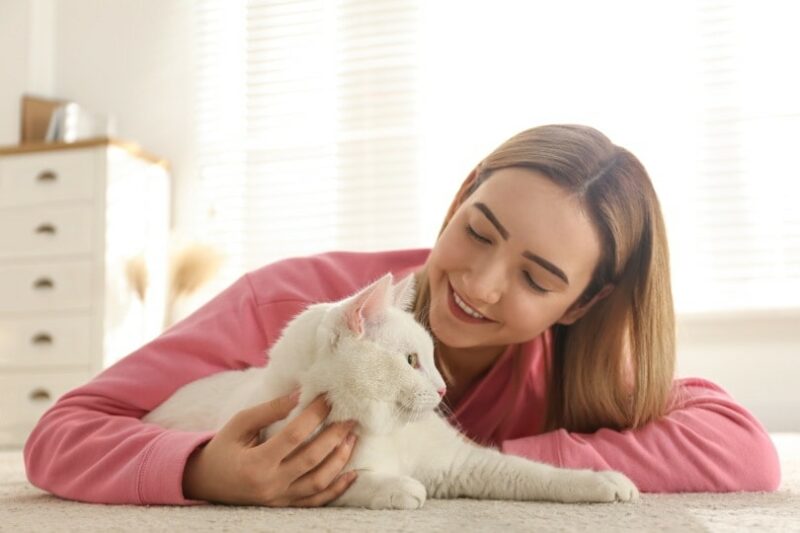
Summary
While we need more research to determine exactly why people like smelling cats, it likely has to do with bringing back fond memories or enjoying the pheromones that cats produce, and there’s scientific evidence available to back up these theories. Fortunately, it’s not dangerous to sniff your cat (if they allow it), unless you are allergic to pet dander. Your cat may even enjoy the extra attention!
See also:
- Siamese Maine Coon Mix: Pictures, Care, Traits & Info
- 28 Dirty Cat Jokes – Adult and Family-Friendly Jokes
Featured Image Credit: Kadres, Pixabay

